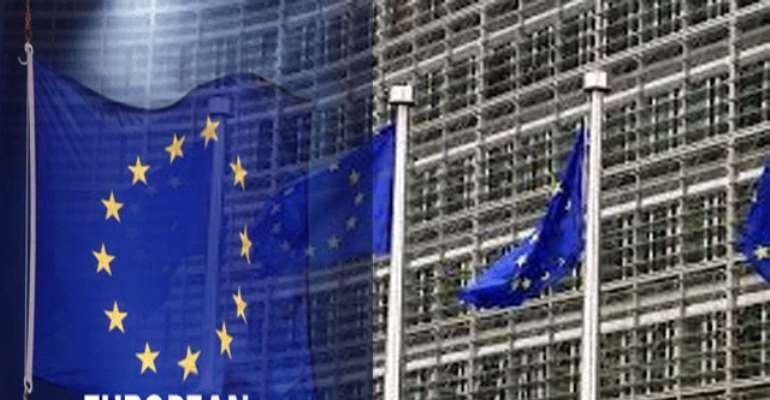EU approves $512m to mitigate Northern crisis, boost power supply

The European Union (EU) has approved a $512 million (about N112 billion) grant to help provide health and resilience in the northern part of the country which has been bedevilled by insecurity and declining economic activities.
The intervention is also expected to improve governance by deepening democracy and boost power supply across the country.
Also, the United States Agency for International Development (USAID) pledged $231 million support for new education programmes that will help provide safe learning opportunities for girls in Nigeria, Afghanistan, South Sudan, Jordan and Guatemala. The USAID financial support is coming as A-list stars joined hands to support girls’ education worldwide
The EU assistance was announced Friday in Nairobi, Kenya during the 11th European Development Fund (EDF) National Indicative Programmes (NIP) between the Federal Government and the EU at the side lines of the just concluded 99th session of the African, Caribbean and Pacific Council (ACP) of Ministers and 39th Session of the African, Caribbean and Pacific Council-European Union (ACP-EU) Council of Ministers meetings.
The supervising Minister of National Planning (NPC), Mr. Bashir Yuguda, signed the deal on behalf of Nigeria while the EU Commissioner for Development Cooperation, Andres Piebalgs signed for the EU. The Federal Government has been battling insurgency in the Northern part of the country with the attendant loss of lives and property.
Apart from the psychological trauma the breakdown of law and order has caused, the regime of State of Emergency put in place to forestall further violence is said to have paralysed commercial activities in the region. President Jonathan administration has also promised to revitalise the economy of the region as soon as the spate of violence being unleashed by members of the terrorist group, Boko Haram is effectively curtailed.
In most states in the North, the devastating socio-economic effects of the sect's serial killings and bombings, especially in Borno, Yobe, Niger, Kaduna, Kano, Plateau (which is more of ethno-religious conflict), Kogi, Bauchi and recently ,Sokoto, has destroyed economic and commercial activities with many people relocating to other places.
Piebalgs stressed that the grant would support programmes in agriculture and rural development in the north as well as electricity and governance in the country.
He said the Union's development support to Nigeria stood at about €100 million in 2013 alone, adding that there was a possibility of increasing the grant in future.
In a statement by Head of Information, NPC, Mr. Salisu Badamasi Haiba, he said if the grant was well utilised, it would “make a great difference both to Nigeria and to us in Europe. More prosperity among nations definitely leads to more trade and less problems and leads to world peace. So indirectly Europe also benefits.'
EU's previous support to Nigeria on development cooperation was valued at about €857.5 million. Yuguda said the 11th EDF programmes and projects were directed at addressing some of the challenges associated with the country’s emerging middle income status as well as help in achieving its developmental goals.
The minister said: 'Privatisation of key sectors of the economy such as telecommunications and electricity generation and distribution has been given top priority in an attempt to diversifying the economy away from dependence on oil and to stimulate investment especially in agriculture and food production.
'You can see that post-GDP rebasing Nigeria is clearly on the way to realising this vision. We started off with being the 37th largest economy in the world. Now we are number 26 in the world and the first in Africa. I have no doubt that with the policies and programmes of President Goodluck Jonathan as well as the deep reforms going on in many sectors, this vision will be realised.
Continuing, he said: “This government is seriously focusing on boosting investment, improving entrepreneurship and helping the private sector and small scale industries to thrive. You can also see that the rebasing exercise has helped us to have a broader and clearer view of the sectoral performance of our economy. The Federal Government is now focusing on those sectors that have high job content.' Agency report
